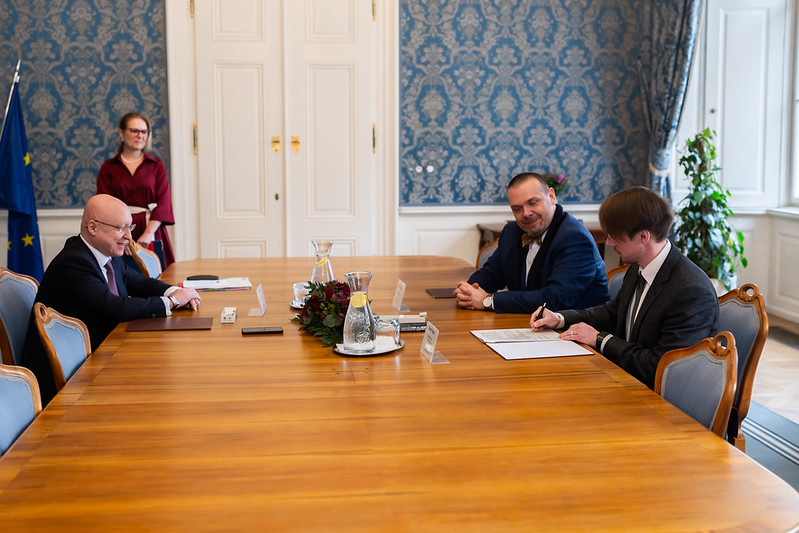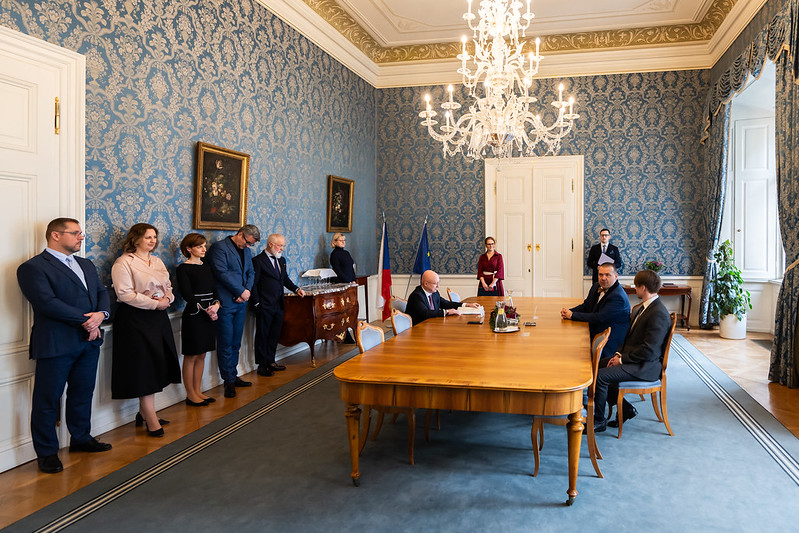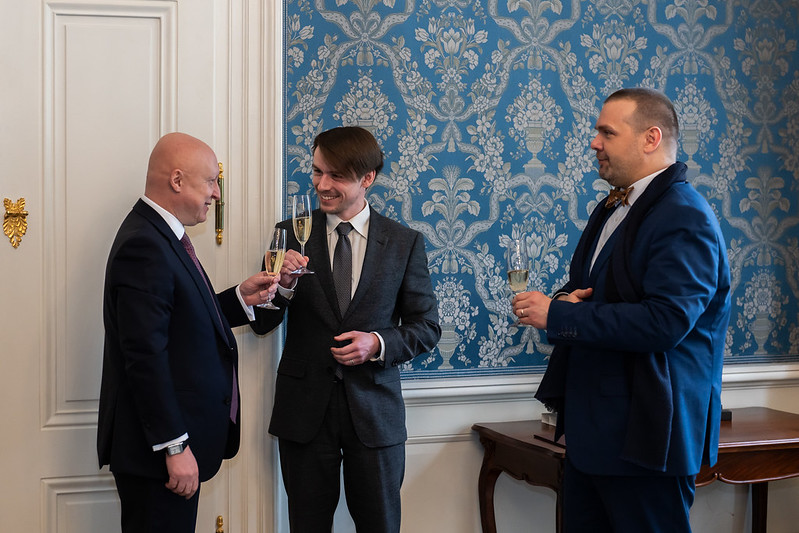ČEZ Group becomes the general partner of the Prague Spring Festival
The Minister of Culture Martin Baxa, who is also the Chairman of the Board of Directors of the public benefit society Prague Spring, and Daniel Beneš, CEO of ČEZ Group, signed a Memorandum of Mutual Cooperation at the Nostic Palace. ČEZ Group thus becomes the new general partner of the Prague Spring International Music Festival. This memorandum underlines the importance of sponsorship and corporate social responsibility for culture symbolically in the Year of Czech Music.
“Prague Spring has been presenting the best of world music in one place for decades. For us at ČEZ, the tradition of classical music is very important and we want to give it new energy, which is why we have long supported renowned musical ensembles such as the Czech Philharmonic, the Prague Philharmonic Choir, the Czech National Symphony Orchestra, the Smetana Litomyšl, Lípa Musica, Concentus Moraviae, and Janáček’s May festivals. It is therefore logical that the Prague Spring could not remain outside our attention. I am therefore proud that starting with this year’s 79th season, ČEZ is becoming the general partner of this unique festival,” says Daniel Beneš, Chairman of the Board of Directors and CEO of ČEZ, about the newly signed cooperation.

“In the Year of Czech Music, it is more than symbolic to renew the position of general partner of such a unique musical project as Prague Spring. Last year, the Ministry of Culture guaranteed the festival funding of CZK 30 million a year for three years, which brings stability to its budget and allows it to plan ahead. My decision in this case was also supported by the fact that the festival has been working with multi-source funding for a long time. In my opinion, cooperation with the private sector in the area of financing is a good and confident step for the future. And it’s great if this cooperation is also a kind of conscious partnership that comes from an interest in culture and the arts, an awareness of their values and mission. And I believe that Prague Spring’s partnership with ČEZ is such a partnership,” adds Martina Baxa, Minister of Culture of the Czech Republic and Chairman of the Prague Spring Board of Trustees, to the context of support for the festival.

“Prague Spring brings the best of the world of classical music to the Czech audience, it is a bridge connecting Czech musicians with the top international musicians,” says Pavel Trojan, director of the Prague Spring Festival. “The festival is a public benefit corporation, with public funds making up approximately half of the budget, while the remaining part of the income comes from contributions from sponsors, patrons and admission fees,“ says Pavel Trojan. “We are extremely pleased that ČEZ has become the general partner of the Prague Spring Festival. We believe that we have gained a strong and stable partner who will enable us to develop the festival artistically in the years to come. After all, in 2025 the festival will celebrate its 80th jubilee year, and we are preparing a truly spectacular programme for this occasion, with guest appearances by a number of top orchestras, not only European ones. Without the support of ČEZ, we would not have been able to implement a number of projects and be so bold in our planning,” concludes Trojan.

Sponsorship in the history of Prague Spring
The Prague Spring Festival was founded in 1946 as a state festival. Since 1990 it has been an example of a major cultural organisation with successful multi-source funding, where the private sector has contributed significantly to the overall budget. In 2000, the festival was transformed from a state-funded organisation into a public benefit society, further strengthening the multi-source funding aspect. Komerční banka was the general partner of Prague Spring throughout the 1990s, followed by Česká spořitelna, which supported the festival for fifteen years (2001-2015). CETIN, a PPF company, was the general partner of the festival in 2016-2017. Subsequently, it remained in the partnership structure as a technology partner. Since 2018, the position of General Partner of the Prague Spring Festival has not been filled. The shortfall was partly compensated by an increase in public budget support and admission revenue, but also by the need to withdraw from some planned concert projects.
Innogy has been supporting the festival for 30 years and is the largest supporter after the General Partner as a Festival Partner. Subterra is also a long-time sponsor of the festival, with the title of Concert Partner.
The current festival management has set a goal to strengthen the private sector’s share of the festival’s multi-source funding. In this context, the partnership with ČEZ is an important step for the future and further development of the Prague Spring Festival.
About the Prague Spring Festival
For almost eighty years (founded in the spring of 1946), the Prague Spring International Music Festival has established itself as one of the world’s most respected classical music festivals. Rafael Kubelík, one of the most important conductors of 20th century classical music, was responsible for the birth of the festival. The very first edition saw the international debut of the later renowned conductor Leonard Bernstein. Since 1947, the Prague Spring International Music Competition, a founding member of the World Federation of International Music Competitions since 1957, has also become a fixed part of the festival. Each year the festival presents over fifty concerts – guest appearances by international artists and orchestras, the best performers of the domestic scene, artistic legends and outstanding talents at the beginning of their artistic careers.
An important element of the festival is the breadth of its dramaturgy – the range of concerts extends from medieval music to the works of living composers. Prague Spring is a platform on which Czech classical music and the Czech performing arts meet regularly, on a large scale and at a high level with the international scene, breaking free from the grip of localism and subjecting themselves to the strict standards of true worldliness. Equally important is that this synergy primarily benefits the Czech listener and viewer, who becomes an oriented, knowledgeable and demanding cultural customer. Thanks to the festival’s participation, foreign artists encounter the music of Czech composers, to a large extent also contemporary ones, through which these works are spread further around the world.






